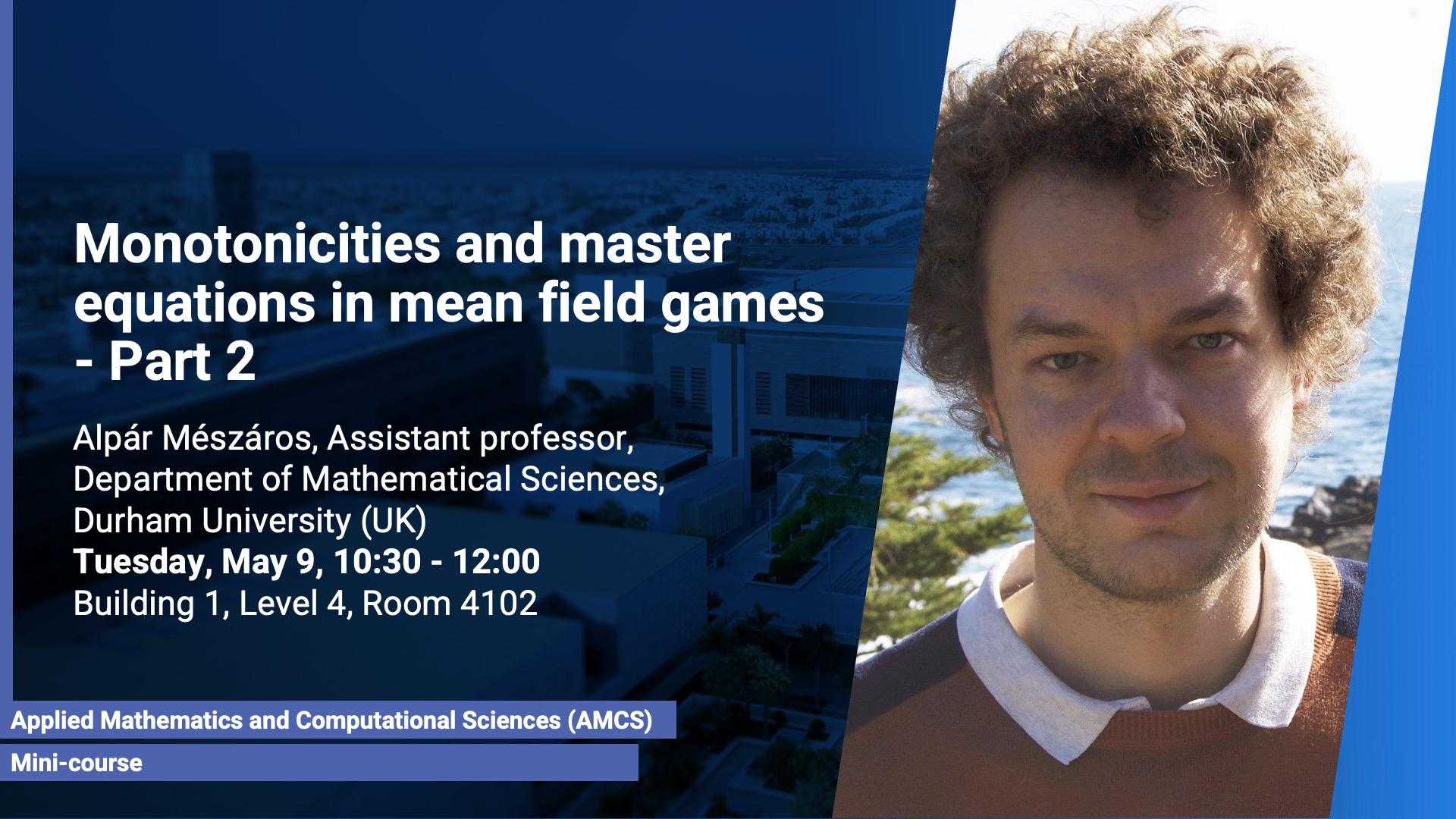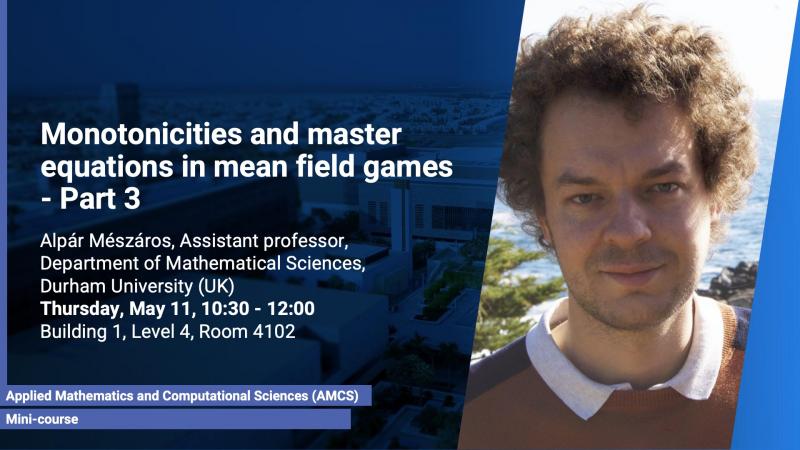Abstract
The theory of mean field games (MFG for short) aims to study limiting behavior of Nash equilibria of (stochastic) differential games when the number of agents tends to infinity. While in general existence of MFG Nash equilibria can be established under fairly general assumptions, uniqueness is the exception rather than the rule. For finite horizon mean field games uniqueness typically holds if the time horizon is small (or the data satisfies other smallness conditions). Unconditional uniqueness however can be typically established under further structural assumptions. Sufficient conditions that guarantee this are provided by various monotonicity conditions. In this mini-course we will go through several monotonicity conditions, in dichotomy with each other, and will investigate their deep implications beyond the uniqueness of MFG Nash equilibria. One such implication is the well-posedness of the underlying master equations. The master equation, a hyperbolic PDE on the space of probability measures, is a fundamental object in the theory which in particular can be used to obtain quantitative rates of convergence of closed loop Nash equilibria of games with finite number of agents, when their number tends to infinity.
Brief Biography
Alpár R. Mészáros is an assistant professor in mathematics at the University of Durham, England, UK. Prior to joining Durham in 2019, he has been a Hedrick Assistant Professor at UCLA, Los Angeles, California. Before arriving to UCLA, Alpár has obtained his PhD in mathematics in 2015 at the University of Paris-Sud, Orsay, France, under the guidance of Prof. Filippo Santambrogio. His expertise includes calculus of variations and partial differential equations in connection to the theory mean field games, optimal mass transportation and fluid mechanics. He has been recently awarded an EPSRC New Investigator Award.

